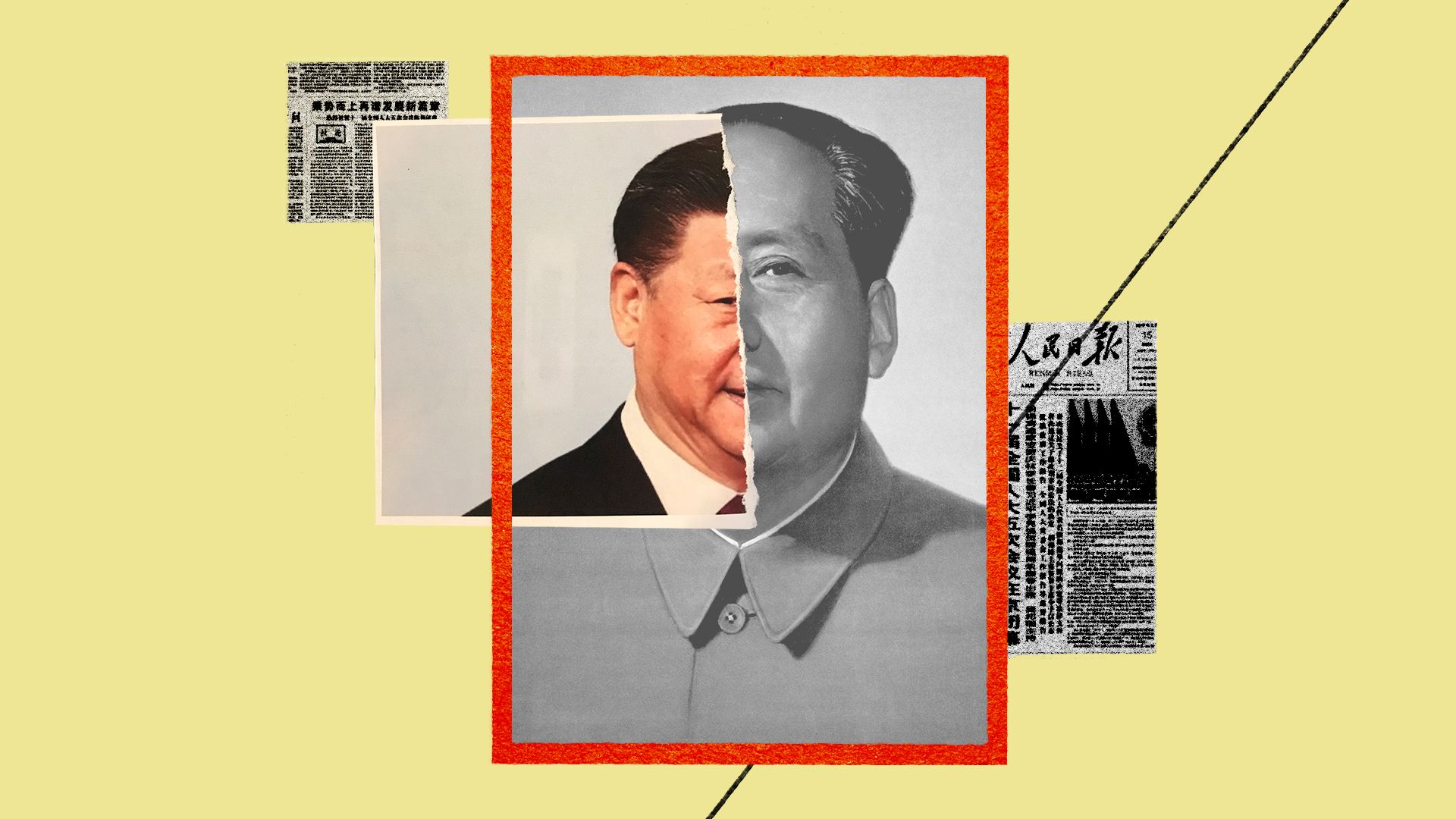Xi Jinping's omnipresent propaganda empire
Add Axios as your preferred source to
see more of our stories on Google.

Illustration: Rebecca Zisser/Axios
China’s powerful and well-funded Department of Propaganda has been tasked with building the same kind of personality cult around Xi Jinping that existed around Mao Zedong — efforts that infiltrate Chinese classrooms and extend beyond the country's borders.
The impact: The department aims to control all the information that Chinese people see and hear — which is why newspaper readers across China this week were instructed to “carve Xi Jinping's speech into our bones and dissolve his spirit into our blood.”
The Xi effect
Under Xi, the Propaganda Department has grown stronger and more zealous.
- The Chinese Communist Party added a disciplinary role to the Propaganda Department's powers, according to Yun Sun, China director at the Stimson Center, a foreign policy think tank. Any member who makes public comments that are not in line with the Communist Party's policies can be punished.
- The statement about carving Xi's speech "into our bones" showed the intensity of the messaging efforts. "In the Xi era these practices have taken on more exuberance than we have seen in decades," says Axios contributor Bill Bishop.
- "Xi Jinping Thought" — Xi's 14-point political theory that includes emphasis on core socialist values and party discipline — was immortalized in the Communist Party's constitution last November. By March, it was enshrined in the state's constitution as the guiding principles for both party and country.
"Xi has led a very successful effort to put together a police state apparatus that includes the control of information and, in a sense, the control of people's minds."— Willy Lam, political scientist and expert on propaganda at the Chinese University of Hong Kong
The campaigns
The Department of Propaganda controls news and information.
- China has state-run and commercial media outlets, but on controversial issues — especially matters of foreign policy — all media outlets are fed standard messaging by the official news agency, Xinhua, which gets its information straight from the Communist Party.
- For example, during the 2011 revolution in Egypt, the government reportedly said “all media nationwide must use Xinhua’s reporting on the Egyptian riots. It is strictly forbidden to translate foreign media coverage," Sun notes in a Brookings article.
Propaganda is omnipresent in public life, from internet forums to city streets.
- U.S. researchers uncovered a massive online propaganda campaign: They estimate there are nearly 500 million posts on Chinese social media that appear to express the authentic views of ordinary people, but are in fact planted by government employees at the party's direction.
- There's virtually nothing politically substantive in the posts, Jennifer Pan, one of the researchers and a Stanford professor, tells Axios. It's just happy, inspirational content intended to distract from controversial issues.
- The party released a blueprint for a new bureaucratic structure in March that gives the department full oversight of film, television, newspapers and magazines, including the authority to dictate which foreign films can be imported, according to the New York Times.
The department also influences school curriculums and academic research — and not just in China.
- "Xi Jinping Thought" has become a core component of high school and university syllabuses, with entire courses being taught on the philosophy.
- And the efforts have reached U.S. shores, with Beijing-backed Confucius Institutes that promote Chinese language and cultural education popping up at over 100 American universities. It's not yet clear whether these institutes actively engage in foreign influence campaigns, but three lawmakers — Sen. Marco Rubio, Sen. Tom Cotton and Rep. Joe Wilson — have introduced legislation to require the institutes to register as foreign agents.
